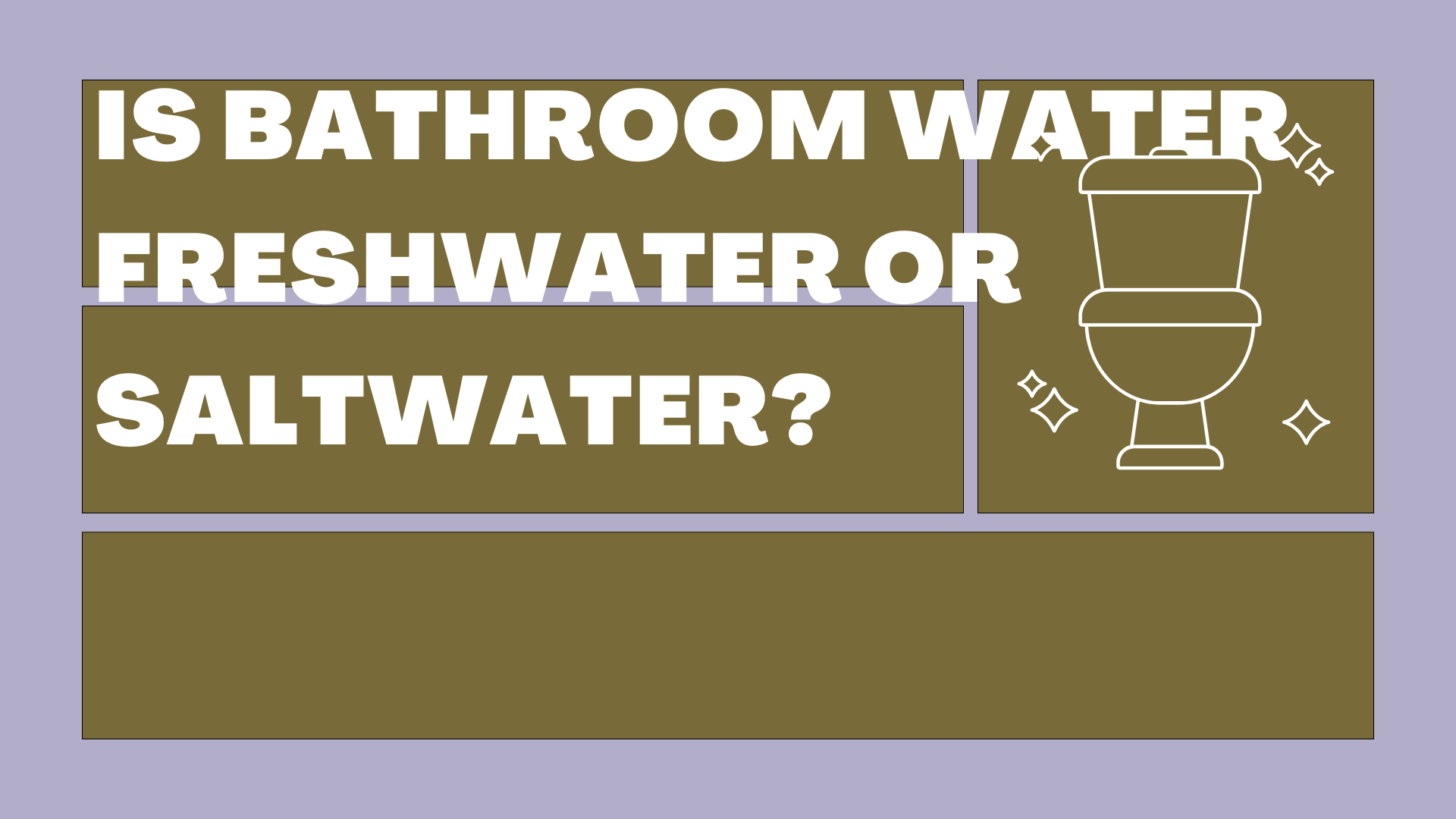When you turn on your bathroom faucet or flush the toilet, have you ever wondered: is bathroom water freshwater or saltwater? The answer might seem obvious to some, but understanding the journey of water from source to tap can help us appreciate our modern plumbing systems and make more informed decisions about water conservation.
The Truth About Your Bathroom Water: Is Bathroom Water Freshwater or Saltwater?
The water flowing through your bathroom fixtures is exclusively freshwater. Whether you’re taking a shower, washing your hands, or filling the toilet tank, all bathroom water comes from freshwater sources. This might surprise some people who live in coastal areas, where the ocean is their nearest water source, but there’s a good reason why saltwater isn’t used in our home plumbing systems.
The Source of Your Bathroom Water
Municipal water systems typically draw water from various freshwater sources:
Surface Water:
- Rivers and streams
- Lakes and reservoirs
- Natural springs
Groundwater:
- Aquifers
- Underground wells
- Natural underground reservoirs
These freshwater sources undergo extensive treatment processes before reaching your bathroom. The water treatment process typically includes:
- Coagulation and Flocculation: Chemicals are added to the water to make dirt and other particles stick together.
- Sedimentation: The larger particles settle to the bottom of water tanks.
- Filtration: Water passes through various filters to remove smaller particles, parasites, and bacteria.
- Disinfection: Usually through chlorination or UV treatment to kill any remaining harmful organisms.
Why Saltwater Isn’t Used in Bathrooms
There are several crucial reasons why bathroom water must be freshwater rather than saltwater:
- Corrosion: Saltwater is highly corrosive and would quickly damage pipes, fixtures, and plumbing components. The salt content would eat away at metal surfaces and create expensive maintenance issues.
- Health Concerns: Saltwater isn’t suitable for human consumption or hygiene. Regular exposure to saltwater during bathing could irritate skin and eyes, and accidentally swallowing it while brushing teeth could lead to dehydration.
- Mineral Buildup: The high mineral content in saltwater would create significant scale buildup in pipes and fixtures, reducing water flow and potentially causing system failures.
- Cost: Desalinating saltwater for domestic use would be prohibitively expensive for most communities, requiring massive infrastructure investments and ongoing energy costs.
The Environmental Impact
Using freshwater in our bathrooms does come with environmental considerations. As global freshwater resources become increasingly stressed, it’s important to understand how our bathroom water usage affects the environment:
- Water Scarcity
- Only about 3% of Earth’s water is freshwater
- Of that 3%, only 1% is easily accessible
- Growing population puts increased pressure on available freshwater resources
- Energy Usage
- Treating and pumping water to homes requires significant energy
- Heating water for showers and sinks adds to household energy consumption
- Water treatment facilities are major energy consumers
- Chemical Impact
- Treatment chemicals can affect aquatic ecosystems when released
- Cleaning products used in bathrooms enter the water system
- Pharmaceutical residues from human waste impact water quality
Conservation Solutions
Understanding that bathroom water is freshwater should motivate us to conserve this precious resource. Here are some effective ways to reduce bathroom water consumption:
- Install Water-Efficient Fixtures
- Low-flow showerheads
- Dual-flush toilets
- Faucet aerators
- Fix Leaks Promptly
- Check for toilet leaks using food coloring
- Monitor faucets for drips
- Inspect pipe connections regularly
- Adopt Water-Saving Habits
- Take shorter showers
- Turn off taps while brushing teeth
- Only run full loads of laundry
The Future of Bathroom Water
As technology advances and environmental concerns grow, the future of bathroom water systems might include:
- Greywater Systems
- Reusing sink and shower water for toilet flushing
- Collecting rainwater for non-potable uses
- Implementing water recycling systems
- Smart Technology
- Water usage monitoring systems
- Leak detection devices
- Automated conservation features
- Alternative Treatment Methods
- UV purification
- Biological filtration
- Advanced filtration membranes
Understanding Water Quality
The freshwater in your bathroom meets strict quality standards set by environmental protection agencies. Regular testing ensures that the water is:
- Free from harmful bacteria and parasites
- Within acceptable limits for minerals and chemicals
- Safe for human contact and consumption
- Properly treated and disinfected
Impact on Home Maintenance
Using freshwater in bathrooms helps maintain your home’s plumbing system. However, even freshwater can contain minerals that affect your fixtures over time:
- Hard Water Issues
- Calcium and magnesium buildup
- Reduced water flow
- Spotting on fixtures
- Prevention Methods
- Water softeners
- Regular cleaning
- Preventive maintenance
Conclusion
The answer to whether bathroom water is freshwater or saltwater is clear: it’s exclusively freshwater. This understanding helps us appreciate the complex infrastructure that brings safe, clean water to our homes and reminds us of our responsibility to use this resource wisely. As we face growing environmental challenges and population pressures, being mindful of our water usage and implementing conservation measures becomes increasingly important.
By making informed choices about our water usage and supporting sustainable water management practices, we can help ensure that future generations continue to enjoy the convenience and safety of freshwater in their bathrooms. Remember that every drop counts, and small changes in our daily habits can make a significant difference in preserving our precious freshwater resources.












